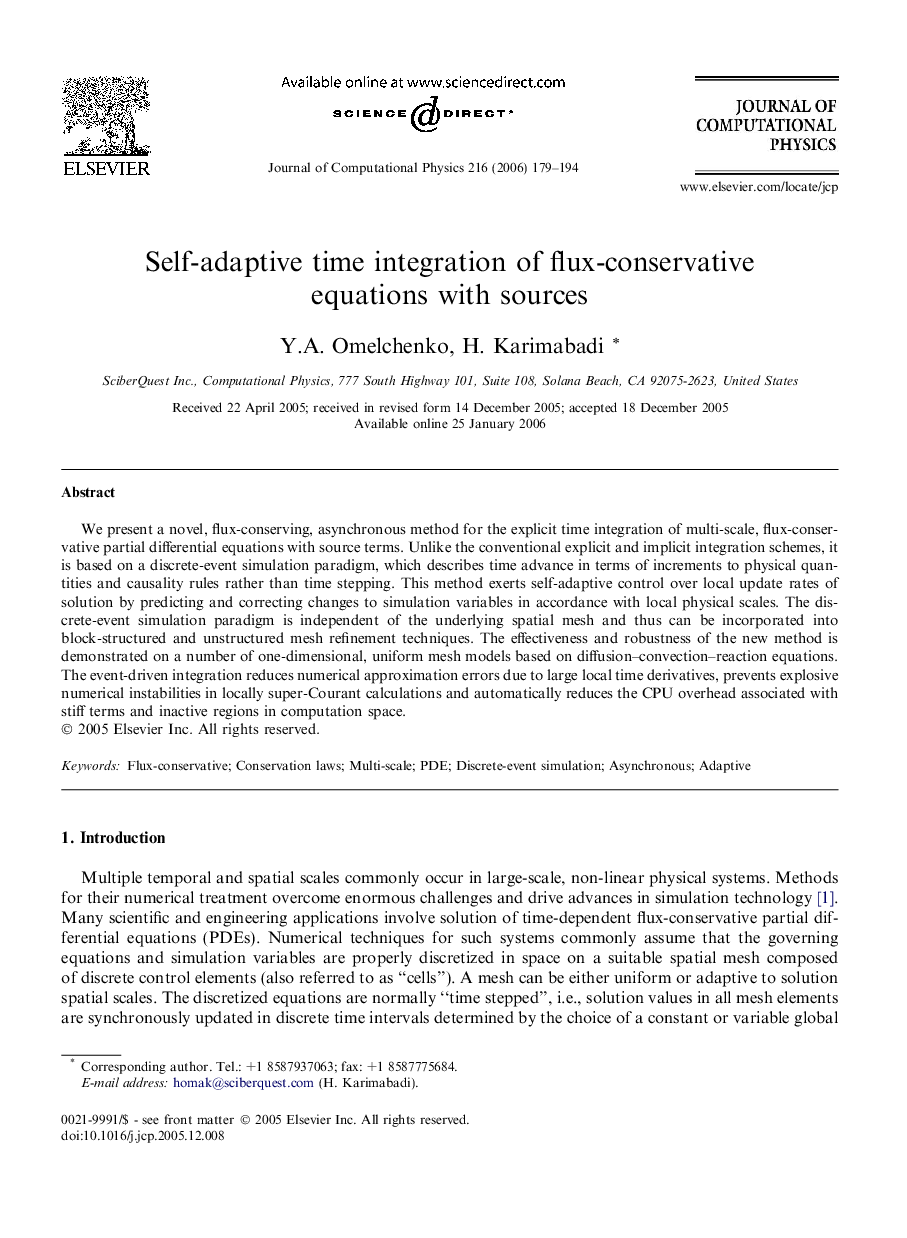| Article ID | Journal | Published Year | Pages | File Type |
|---|---|---|---|---|
| 521035 | Journal of Computational Physics | 2006 | 16 Pages |
We present a novel, flux-conserving, asynchronous method for the explicit time integration of multi-scale, flux-conservative partial differential equations with source terms. Unlike the conventional explicit and implicit integration schemes, it is based on a discrete-event simulation paradigm, which describes time advance in terms of increments to physical quantities and causality rules rather than time stepping. This method exerts self-adaptive control over local update rates of solution by predicting and correcting changes to simulation variables in accordance with local physical scales. The discrete-event simulation paradigm is independent of the underlying spatial mesh and thus can be incorporated into block-structured and unstructured mesh refinement techniques. The effectiveness and robustness of the new method is demonstrated on a number of one-dimensional, uniform mesh models based on diffusion–convection–reaction equations. The event-driven integration reduces numerical approximation errors due to large local time derivatives, prevents explosive numerical instabilities in locally super-Courant calculations and automatically reduces the CPU overhead associated with stiff terms and inactive regions in computation space.
